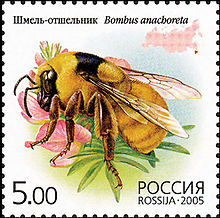Ecologists at the University of Stirling in Scotland have found that neonicotinoids reduce the strength and duration of a bumblebee’s buzz. Their study was published this week in the journal Scientific Reports. Buzzing is more important than you might think. The vibrations of a bee's wingbeat help it shake pollen from flowers and onto its body. This pollen then gets deposited on the next flower the bee visits, resulting in pollination. Less buzzing equals less pollination, and reduces the bees' ability to forage for themselves.
“Our result is the first to demonstrate quantitative changes in the type of buzzes produced by bees exposed to field-realistic levels of neonicotinoid,” Dr Penelope Whitehorn, the University of Stirling Research Fellow who led the research, said in a statement. “We also show that buzz pollinating bees exposed to the pesticide also collect fewer pollen grains.”
The researchers analyzed the duration of the acoustic signals produced by bumblebees during a pollinating session. They found that the bees subjected to chronic pesticide exposure, at concentrations similar to those found in the real world, had a shorter buzz and lower buzzing effort than control bees. In turn, this meant those bees also collected significantly less pollen. Dr Whitehorn added: “We found that control bees, who were not exposed to the pesticide, improved their pollen collection as they gained experience, which we interpreted as an ability to learn to buzz pollinate better.
Source: IFL Science, November 2017
http://www.iflscience.com/environment/pesticides-make-bees-lose-their-b…

- Login om te reageren
